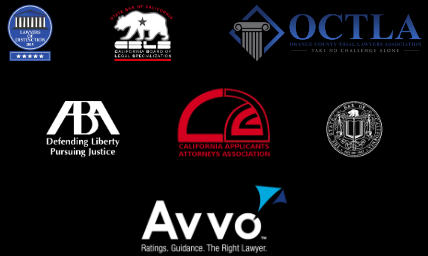Worker’s compensation benefits includes financial reimbursement of medical bills and lost wages related to injury or illness suffered at work. An individual can get hurt or sick at the workplace for many reasons. In most cases, it doesn’t matter who was at fault if you were doing your job at the time of the accident. Worker’s compensation insurance is favorable for both the employer and the employee. While the employee is able to prevent economic damages resulting from the inability to work, the employer is protected against workplace injury lawsuits. Personal Injury Attorney in Woodland Hills, CA enlists crucial requirements to receiving worker’s compensation benefits:
Status of employment
The foremost condition for acquiring worker’s compensation benefits is that an organization or individual has employed you. Just because you work for someone does not necessarily mean that you are their employee. The law determines your employment status by considering your control over the job and the relationship with your recruiter. Typically, volunteers and unpaid interns are not entitled to worker’s compensation benefits.
Several jobs or occupations are excluded from receiving any financial reimbursement for work related injuries. Many part time workers like household maids, nannies, gardeners, and other kinds of caregivers in private homes cannot claim for personal injuries sustained on duty. Many seasonal workers, such as farmers are also exempt from the insurance policy. Outsourced help, temporary staff, freelancers, and independent contractors are not recognized as a company’s employees either. Some business owners list full time employees as independent contractors to avoid paying payroll taxes and buying insurance premiums. Some states disregard compensation benefits for undocumented workers (illegal immigrants) as well.
Employer’s Insurance Policy
If your employer never bought worker’s compensation insurance policy, it would indeed be a sizable glitch in receiving the benefits. Most states, particularly California has made it compulsory for every employer to purchase an insurance premium that corresponds to the size and nature of their business. Other states offer exemptions to some small businesses, but they still choose to buy insurance for personal and employee welfare. If your employer does not have insurance despite the legal liability, you own the right to file a lawsuit against them. You can fight your case in the worker’s compensation court or the civil court. If you have further confusions regarding to your employer’s insurance policy, you must certainly consult a worker’s compensation attorney.
Statute of Limitations
Every state has a time limit for reporting a work related injury and filing a personal injury lawsuit against the employer. If you do not act quickly and miss the deadline, you will lose the chance for receiving any compensation. The time given for reporting an injury is usually between 10 days to 3 months, whereas claims can be filed until 1 to 3 years. If sufficient time has passed since the occurrence of the accident, it may become harder to provide convincing evidence for the severity of your injury.
The Nature of the Injury
Certain injuries and illnesses are clearly work related, but others could be hard to prove. Medical reports and the support of onsite witnesses can help strengthen your case. The employer’s insurance provider will thoroughly investigate the circumstances before issuing a payout.





